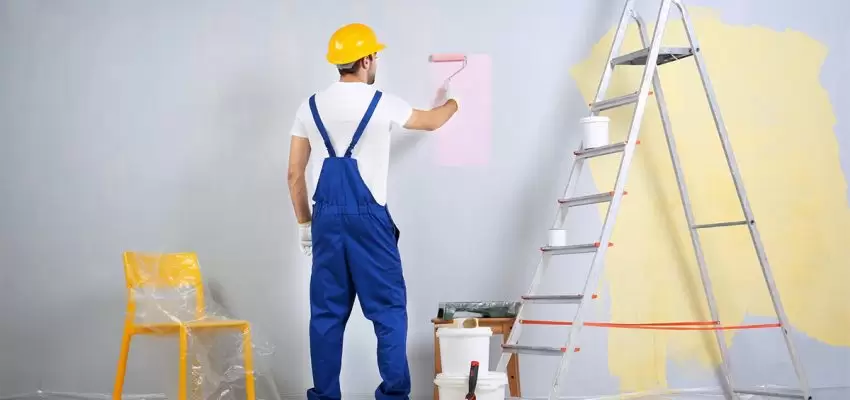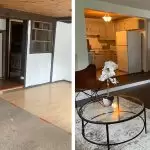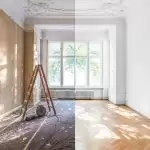Having your home painted can completely transform and update its look. However, finding the right painter is key to ensuring you get a high-quality paint job that lasts. There are several important factors to consider when hiring a painter so that you choose someone reliable, experienced, and a good fit for your specific painting needs. Taking the time to carefully evaluate potential painters can save your time, frustration, and money in the long run.
Post your Requirement
|
Term |
Definition |
|
Painter |
A professional skilled in the application of paint is typically hired to paint surfaces such as walls, ceilings, and other structural elements to enhance aesthetics or provide protection. |
| Painters for Home |
Painters who specialize in residential painting projects, including interior and exterior painting of houses, apartments, and other domestic properties. |
|
Perfect Painter |
Either a specific company name or a descriptor for a highly skilled and reliable painting service that aims for flawless results in their workmanship. |
| Painters in India |
Painting service providers operating within the country of India, offer various painting services to clients across different regions. |
Here are some tips for choosing the perfect painter for your dream house:
1. Outline the Painting Project and Requirements:
Before beginning your search, outline the specifics of your painting project and requirements:
- Scope: Determine which parts of your home you want to paint – interior rooms, exterior surfaces, trim, shutters, etc. Decide on a realistic timeline for completing the work.
- Paint selection: Decide if you want to use standard white or colored paints. Consider special finishes like high-gloss, eggshell, matte, etc.
- Skill level: Determine the difficulty level of your surfaces and project. High ceilings, intricate trimwork, and prior wallpaper removal will require more skilled painters. Consider whether you’ll need specialty painting like faux finishes.
- Budget: Set a clear budget for the total project costs including supplies and labor. Get a few estimates if you need more clarification on pricing. Having a set budget will help narrow down painter options.
Carefully considering these key details upfront will help you communicate your needs to potential painters during the selection process.
2. Research and Ask for Referrals:
Once you outline your painting goals, start gathering referrals:
- Ask neighbors, family, and friends if they can recommend any painters who have done good work for them previously.
- Check sites like HomeAdvisor that provide reviews and ratings by past customers for pros in your area. Focus on painters with consistently positive reviews.
- Search online for highly rated painters located nearby. Look for information about their experience, areas of expertise, and examples of their work if available.
- Contact your local paint supply stores. Long-time employees can often provide referrals for painters who regularly purchase supplies from them.
- Pay attention to word-of-mouth referrals as they typically indicate painters who have demonstrated solid work for people you know and trust.
3. Assess Experience Level:
As you vet potential candidates, carefully examine their experience painting homes similar to yours:
- Training background: Find out about their formal training credentials. At a minimum, they should have a good working knowledge of proper surface preparation, application techniques, tool usage, and paint selections.
- Years painting: Ask how long they have run their own painting business. Look for at least 5 years of working experience to demonstrate extensive knowledge. Those new to the trade won’t have as deep expertise in assessing issues or solving problems that can arise.
- Portfolio: Request to see examples of recently completed interior and exterior painting projects. Pay attention to proper cut-in lines, even coat applications, and thorough prep work. Variety in their portfolio is a good sign of overall competency for different home painting tasks.
- Licensing: Verify they are properly licensed, bonded, and insured for your protection against property damages or personal liability. Ask to see documentation as proof.
Vetting their competency level ensures you hire someone fully qualified for your painting project from both skill and risk management standpoints.
4. Interview Questions to Ask Prospects:
Once you’ve identified top candidates based on referrals, reviews, and demonstrated expertise, the important next step – interviewing potential painters in person. Excellent communication is key for alignment throughout your project. Use these questions to gauge competency, skills, and compatibility:
Project Execution:
- How do you prepare surfaces for painting and determine what primer or sealer is needed? Understanding proper pre-project steps indicates experience.
- What painting technique and brush do you use for trim, walls, and ceilings? The right tools yield enhanced results.
- How do you protect nearby surfaces from paint and debris? Carefulness saves you cleanup time and frustration.
- How will you apply paint on my textured surfaces? Skill level shows in their technique advice tailored specifically to your unique surfaces and job complexity.
Communication Practices:
- If I have concerns during my project, what is your communication and feedback process? Clear communication expectations prevent surprises down the road.
- Do you provide written contracts and cost estimates for projects? Transparent quoting and contracting avoid billing disputes after the fact.
- Will the same crew work on my home from start to finish? Consistency in staff means greater attention to detail fulfilling your expectations.
Reputation Factors:
- Can you share 2-3 past customer references from similar projects completed recently? Speaking directly to past clients offers reassurance about capabilities and professionalism.
- Do you have a portfolio of interior and exterior painting projects I can view? Visual examples provide insight into the quality and scope of their work.
- How long have you been servicing homes in my particular area? Familiarity with local building specs, codes, and climate impacts translates to better outcomes.
Carefully examining these key factors will help you determine if a painter measures up on expertise, workmanship, communication style, and overall professionalism.
5. Check Reviews and References:
Before making a final hiring decision:
- Customer Reviews: Read through the painter’s customer reviews on various websites. Look for consistent 5-star ratings and glowing testimonials for quality workmanship and strong service commitment. Beware of extreme variability in feedback or certain recurring complaints that signal potential issues down the road.
- References Background: Thoroughly vet 2-3 references by asking key questions about the referrer’s project and experience dealing directly with the painter. Find out specifics like showing up on time, communication frequency, adapting to last-minute changes, following commitments and requests, and tidying up the job site after completion.
- Also, ask if there were any unexpected costs or changes to the original quote and timeline provided to gauge how well they set and managed proper expectations.
- Take note if references express they would hire the painter again without hesitation. Enthusiastic endorsements are a powerful indicator of exceptional customer service and outcomes.
- The right painter for you should have abundant positive customer reviews and enthusiastic referrals from people with projects similar to yours. These serve as further proof points regarding work competency and professionalism.
6. Evaluate Your Top Choice in Person:
Before officially hiring your selected painter, set up an on-site evaluation appointment. Meeting face-to-face enables asking additional questions and envisioning your results together.
Use this final visit to:
- Walk through your entire home and discuss the project scope, priorities, and vision for each space. Address specifics about necessary surface preparation, tools needed, paint types, and any high-priority custom details.
- Provide them with your paint swatches and samples so they understand your exact color specifications for walls, trim, doors, etc.
- Ask to see the specific products and paints they recommend for best adherence and durage considering your surfaces and environmental factors. Higher-quality paints yield longer-lasting transformational results.
- Re-confirm your itemized quote covering project costs, timeline, staffing, clean-up policies, and payment terms. Make sure every detail aligns with the expectations you discussed from the initial bid.
This final step cements alignment between you and the painter so surprises are kept to a minimum once the project kicks off.
Conclusion
Hiring a professional painting contractors or painter with proven high-quality workmanship ensures your paint project realization aligns with your visual goals. Carefully vetting qualifications, checking reviews and references, interviewing top contenders in-depth, and finalizing product specifics in person give you the confidence you chose the best possible painter for your unique job. Investing ample time upfront assessing painters can help you avoid the pitfalls of cost overruns, extended timelines, and frustrations with poor quality results requiring re-work down the road. Finding a 5-star professional aligned clearly to your needs takes your paint project from simply average to completely exceptional each time.























Post A Comment